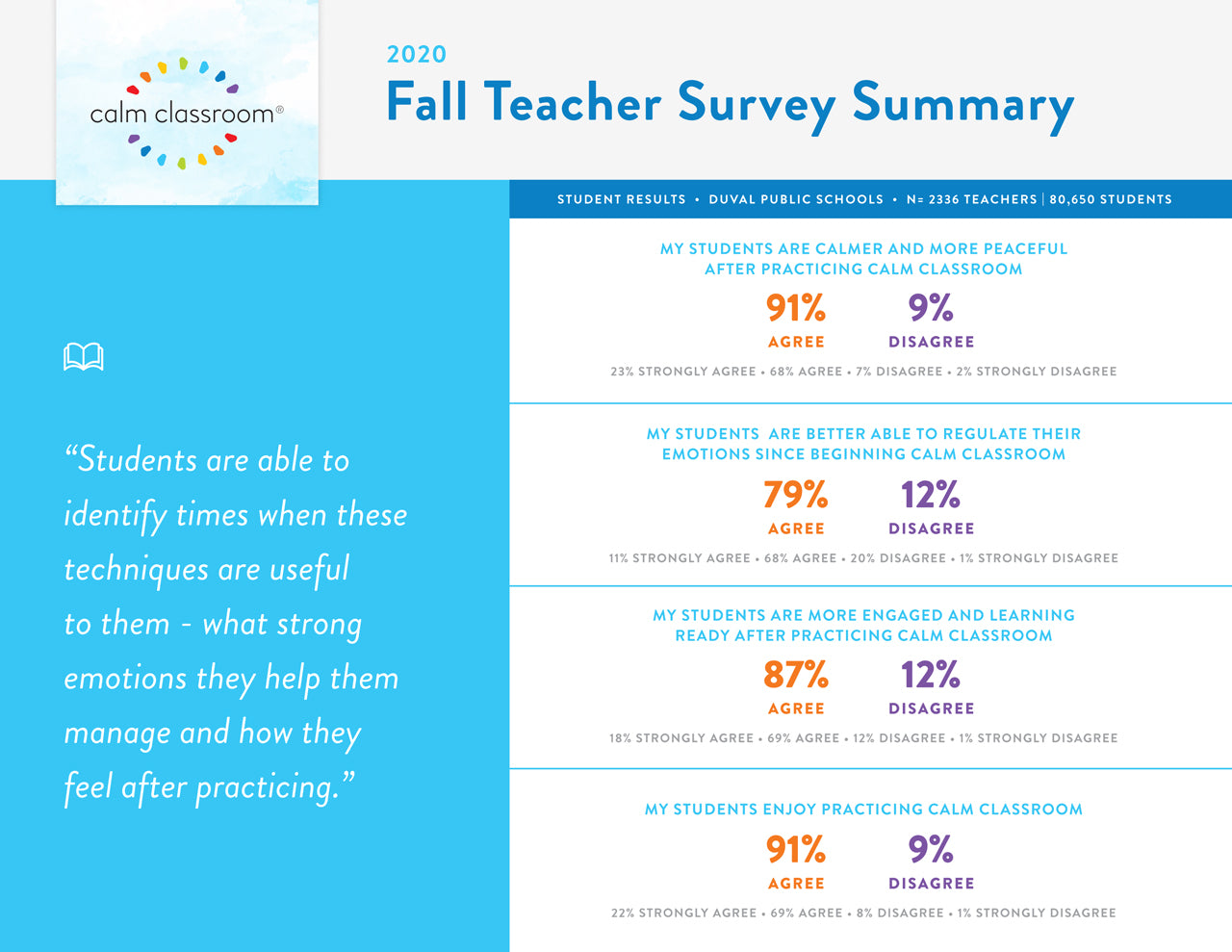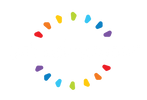The Impact is Real
In today’s world, the stressors of daily life can cause children and adults alike to feel frustrated, overwhelmed and anxious. Calm Classroom provides practical mindfulness-based tools for teachers and students to manage stress and achieve emotional well-being throughout the day. When feeling focused, relaxed and energized, we’re at our best. Calm Classroom data shows a range of positive outcomes across educational communities.
Behavioral Improvements
Year 1 Behavioral Data Scores Interim Report K-8thGrade. (PDF Download)
Reduce Student Stress
81% of teachers report that students are calmer and more peaceful.
“Calm Classroom provides our students and teachers with a positive proactive approach to addressing both the youthful energy and stressful anxiety that students regularly encounter.”
-Principal, Shields Middle School, Chicago IL
Boost Engagement
74% of teachers report that students are more focused and ready to learn.
“During times when emotions are heightened by staff and students alike, the breathing techniques are effective in calming situations…the learning environment has a higher level of student engagement.”
-Principal, Wendell Smith Elementary, Chicago IL
Reduce Teacher Stress
71% of teachers report using Calm Classroom techniques outside of school to manage stress and emotions.
“Practicing Calm Classroom techniques in the middle of a difficult day, after a challenging meeting, or starting my day helps me to feel better and do my best work!”
-Teacher, Boston MA
Request a Copy of Our Most Recent Teacher Survey

Benefits of mindfulness-based and relaxation response strategies
In addition to the results we see directly from implementation of the Calm Classroom program, the benefits of mindfulness and relaxation response strategies have been validated by decades of research.
Improve executive functioning in students
Mindful Awareness Practices (MAPS) improve executive functioning, which includes working memory, emotion regulation, and self-monitoring. Research shows that participation in a program that utilizes MAPS leads to improvements in behavioral regulation and overall executive functioning in elementary school students. Flook et al., 2010 Mendelson et al., 2010
Boost academic and behavioral outcomes
Daily practice of relaxation response techniques and self-care strategies like those found in Calm Classroom leads to positive academic and behavioral outcomes. One study found that middle school students who were exposed to two or more semesters of classes that included these practices had higher grade point averages, better work habits, and higher cooperation scores than students who had less exposure. Similar studies have shown significant increases in self-esteem, greater improvements in levels of perceived stress and anxiety, as well as an increase in health-promoting behaviors. Benson et al., 1994, 2000, Foret et al., 2011
Manage stress and promote wellbeing in adults
Relaxation response techniques and mindfulness-based interventions have long been recognized as effective strategies for managing stress-related illness and enhancing psychological well being in adults. Both modalities increase activity in the parasympathetic nervous system, deactivating the body’s fight-or-flight stress response. Esch et al., 2003, Brown & Ryan, 2003


